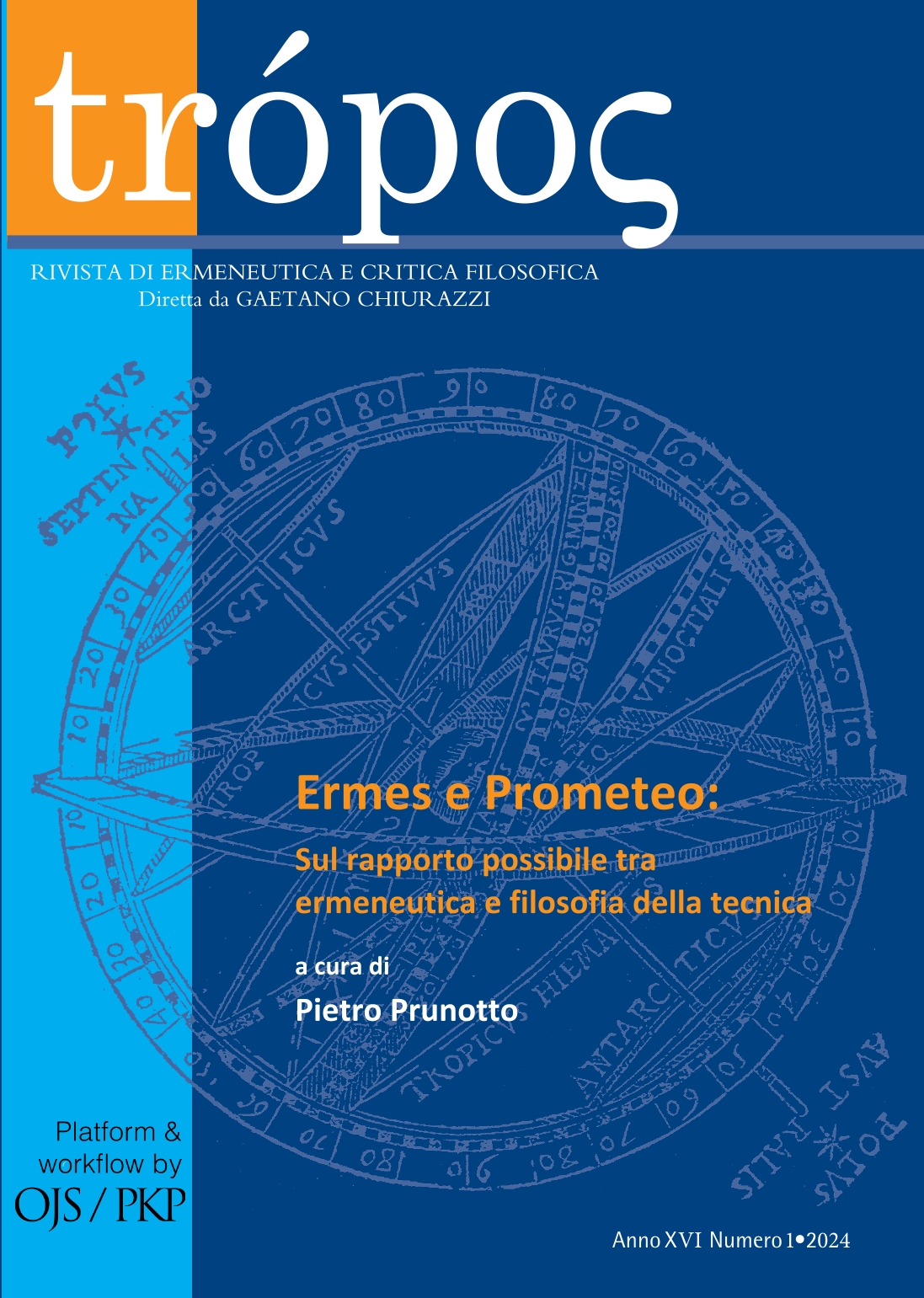Dall'Epimeteo dimenticato alla politica di Ermes.
Stiegler e la postproduzione filosofica del mito
DOI:
https://doi.org/10.13135/2036-542X/11060Parole chiave:
Epiphylogenesis, Existential analytics, Tertiary retention, HermeneuticsAbstract
The paper aims to reconstruct Bernard Stiegler's original perspective on the status and role of technique, which the French philosopher develops in Technics and Time I. The Fault of Epimetheus, paying particular attention to the original work of reinterpretation of the myth of Prometheus and Epimetheus, both in the light of Leroi-Gourhan’s palaeoanthropological analyses, and in function of a deconstruction of the Heideggerian existential analytics. The figure of Epimetheus is thus analysed in its functions of conceptual creation of an unprecedented point of view for philosophical anthropology, i.e. no longer that of the human, nor even that of technique tout court, but of epiphylogenesis as the artificial memory that composes the human organic and the organised inorganic. In this sense, by restoring the most diriment arguments that Stiegler develops in constructing his own perspective, we show how Epimetheus can correspond to what Deleuze and Guattari call the ‘conceptual personae’ of a philosophical theory. Following Stiegler's reworking of the myth, the opportunity is taken to analyse, through the appearance of Hermes, the political function that Stiegler attributes to hermeneutics as the methodological implant of the ‘politics of memory’ announced in Technics and Time I and realised in the pharmacological phase of Stiegler's thought.



